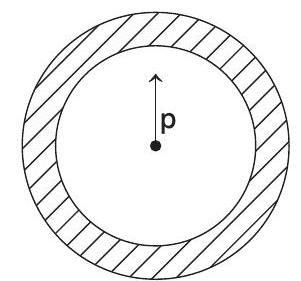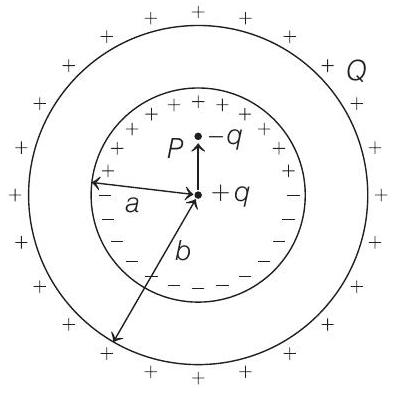Electrostatics 3 Question 1
1. Shown in the figure is a shell made of a conductor. It has inner radius
In this case,
(Main 2019, 12 April I)

(a) surface charge density on the inner surface is uniform and
(b) electric field outside the shell is the same as that of a point charge at the centre of the shell
(c) surface charge density on the outer surface depends on
(d) surface charge density on the inner surface of the shell is zero everywhere
Show Answer
Answer:
Correct Answer: 1. (b)
Solution:
- Electric charge distribution at inner and outer surface of spherical shell due to the electric dipole can be shown as below

Here, we need to consider two different factors
(i) charge on the spherical shell is
(ii) Electric dipole will create non-uniform electric field inside the shell which will distribute the charges on inner surface as shown in figure. But its net contribution to the outer side of the shell will be zero as net charge of a dipole is zero.
Hence, using (ii), option (a) is incorrect as field inside shell is not uniform. Option (b) is correct, as net charge on outer surface is
Option (c) is incorrect, as surface charge density at outer surface is uniform
Option (d) is incorrect, as surface charge density at inner surface is non-zero.
So, option (b) is correct.
Alternate Solution Using Gauss’ law at outer surface, let charge on dipole is






